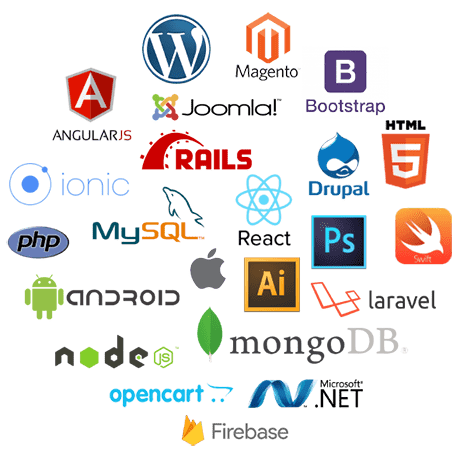Training on Qualitative Data Management and Analysis using Atlas.ti Course
THIS COURSE IS SUITABLE FOR PEOPLE WORKING IN:
Statistician, analyst, or a budding data scientist and beginners who want to learn how to analyze data and research on data using Atlas.ti
Introduction
The aim of this workshop is to enable you to work with ATLAS.ti tools that go beyond simple code and retrieve. A prerequisite for this is a well-structured project and coding system. Therefore, we first look at some examples of how to best set-up a project based on the type of data used. Then we discuss the Do’s and Don’ts of Coding. With this preparation and background, you learn about Co-occurrence Analysis, Boolean Analysis, across and within case-comparisons using the Code-Document Table and the query tool. Further you will be introduced to smart codes and global filters. In the final session you learn about the analytic powers of networks and how to incorporate everything you have done in ATLAS.ti into a report.
Duration
5 Days
WHO SHOULD ATTEND?
Statistician, analyst, or a budding data scientist and beginners who want to learn how to analyze data and research on data using Atlas.ti
Course Objective:
- Learn about the methodological principles behind ATLAS.ti
- Learn the role of ATLAS.ti in the research process.
- Use ATLAS.ti in data analysis following an approach emphasizing data integration, organization, and constant documentation of the process.
COURSE OUTLINE:
Introduction to ATLAS.ti
Conceptual introduction
- Qualitative data analysis.
- Computer-assisted qualitative data analysis.
- What does ATLAS.ti do?
- A work model for ATLAS.ti.
The components of an ATLAS.ti project
- What is the project?
- The objects of the project
Setting up the HU: Creating the project
- Saving the project
- Commenting the project
Adding/importing and loading the project’s documents
- Adding/importing source documents
- Accessing the documents through drop-down menu and side panel/Navigator
- Accessing documents in the Manager
- Commenting on documents
Organizing documents in groups/families
- Definitions and applications.
- Creating groups/families.
Data Segmentation
- Definitions and applications
- Selecting segments in the documents and creating free quotations
- Renaming quotations
- Commenting quotations
Writing Reflections in the Form of Memos
- Definitions and applications
- The Research Diary memo
- Using the Research Diary memo to describe the data segmentation process
- Incorporating quotations into the memo
- Linking memos to quotations
Coding
- Definitions and applications.
- Two approaches: inductive and deductive
- Creating codes inductively: In vivo coding and Open coding
- Creating codes deductively: Free codes
- Coding using different strategies
Data Exploration, Analysis and Visualization
- Semantic linkages between codes
- Definitions and applications
- Linking the codes
- Representing the linkage graphically
- Word frequency counts: The Word Cruncher
- Co-occurrences
- The Query Tool
- The Code-Document Table
Survey importation
Teamwork (ATLAS.ti 7 Windows)
Closure
Methodology
This instructor led training course is delivered using a blended learning approach and comprises of presentations, guided sessions of practical exercise, web based tutorials and group work. Our facilitators are seasoned industry experts with years of experience, working as professional and trainers in these fields.
All facilitation and course materials will be offered in English. The participants should be reasonably proficient in English.
Accreditation
Upon successful completion of this training, participants will be issued with a certificate of participation.
Training Venue
The training is residential and will be held at the Livecode Training Centre in Westlands, Nairobi, Kenya. The course fee covers the course tuition, training materials, two break refreshments, lunch, and study visits.
All participants will additionally cater for their, travel expenses, visa application, insurance, and other personal expenses.
Accommodation
Accommodation is arranged upon request. For reservations contact the Training Officer.
Email: This email address is being protected from spambots. You need JavaScript enabled to view it.
Mobile Number: +254 725 771 853
Training Fees
The course fees is KES 70,000.00 or USD 1,000.00 exclusive of VAT. The course fees covers the course tuition, training materials, two (2) break refreshments, lunch and study visits. Participants will cater for their travel and accommodation costs.
Payment
Payment should be transferred to Livecode Technologies account through bank on or before the course starting date.
Send proof of payment to This email address is being protected from spambots. You need JavaScript enabled to view it.
Cancellation Policy
Payment for the all courses includes a registration fee, which is non-refundable, and equals 15% of the total sum of the course fee.
Tailor- Made
This scheduled course can also be tailored for your organization. To find out how our tailor-made training can help your organization, call our team on
Please Note: The program content shown here is for guidance purposes only. Our continuous course improvement process may lead to changes in topics and course structure.
Event Properties
| Event Date | 04-17-2023 8:00 am |
| Event End Date | 04-21-2023 5:00 pm |
| Registered | 0 |
| Cut off date | 04-13-2023 |
| Individual Price | USD 1,000 |
| Location | Nairobi, Kenya |








